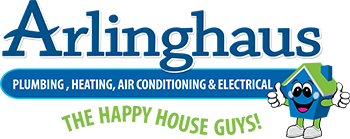A clogged main drain can cause significant issues in your home, from slow drains to sewage backups. It’s a problem no homeowner wants to face, but understanding the signs of a clog can help you address the issue promptly and avoid more severe damage.
So, how do you know if your main drain is clogged? In this blog, we’ll explore the telltale signs of a clogged main drain, the common causes, and what steps you can take to resolve the problem. By being proactive, you can maintain a healthy plumbing system and prevent costly repairs.
What Is the Main Drain?
Your home’s main drain, also known as the main sewer line, is a crucial part of your plumbing system. This pipe connects your household plumbing to the municipal sewer system or your septic tank. All your home drains — kitchen sink, bathroom sinks, toilets, and showers — feed into this central drain. When it’s blocked, it can cause significant disruptions in your daily routine and potential damage to your property.
Signs of a Clogged Main Drain
Identifying the early signs of a clogged main drain can help you avoid severe plumbing issues. Here are some common symptoms:
Multiple Slow Drains
How do you know if your main drain is clogged? One of the most obvious signs of a main drain clog is multiple slow-running drains throughout your home. If you notice that your kitchen sink, shower drain, and floor drains are all draining slowly, it’s a red flag that your main drain might be blocked.
Gurgling Sounds
Gurgling sounds from your drains or toilet can indicate a blockage. These noises are often caused by air trapped in the pipes due to a clog in the main sewer line.
Sewage Backups
Sewage backups are a clear sign of a serious problem. If you see raw sewage coming up from your drains, it’s a definite indication that your main drain is clogged. This issue requires immediate attention from a professional plumber.
Foul Odors
A clogged main drain can cause foul odors to emanate from your drains. This smell is often due to sewage and waste trapped in the pipes, which are unable to move through the system.
Water Backing Up in Unusual Places
If running your washing machine causes the toilet to overflow or water backs up in the shower when you flush the toilet, it’s a sign that your main sewer line is clogged.
Common Causes of Main Drain Clogs
Several factors can contribute to a clogged main drain. Understanding these causes can help you prevent future issues.
Tree Roots
Tree roots are a common cause of main sewer line blockages. Roots can infiltrate your sewer pipe through small cracks, growing and expanding over time, eventually causing a significant clog.
Accumulation of Debris
Over time, debris such as hair, grease, soap scum, and toilet paper can build up in your main drain, leading to a clog. Avoid flushing paper towels, coffee grounds, and other non-degradable items to minimize this risk.
Broken or Collapsed Pipes
Older homes with cast iron or clay pipes are more susceptible to breaks or collapses, which can cause blockages. Even newer homes aren’t immune to this issue if the pipes are damaged by shifting soil or other environmental factors.
Foreign Objects
Sometimes, foreign objects like toys, sanitary products, or excessive amounts of toilet paper can accidentally end up in your drains, leading to a blockage.
How to Address a Clogged Main Drain
If you suspect a main drain clog, it’s important to take action quickly. Here are some steps you can follow:
Stop Using Water
First and foremost, stop using water in your home to prevent further backups and potential damage. This means not running the washing machine, dishwasher, or any faucets.
Identify the Problem
Check all the drains in your home to see if the issue is isolated to one area or affects the entire plumbing system. If multiple drains are slow or backing up, it’s likely a main drain clog.
Try Basic Remedies
You can attempt some basic remedies to clear the clog, such as using a plunger or a plumbing snake. However, these methods might only provide a temporary fix if the clog is severe.
Call a Professional Plumber
For persistent or severe clogs, it’s best to call a professional plumber. They have the tools and expertise to handle main drain clogs safely and effectively. A plumber can perform a thorough inspection and use specialized equipment, such as a sewer camera, to locate and assess the blockage.
How to Prevent Main Drain Clogs
Preventative measures can help you avoid the hassle of dealing with a clogged main drain. Here are some tips to keep your plumbing system in good shape:
Regular Maintenance
Regular maintenance, such as professional drain cleaning, can help prevent clogs. Scheduling routine inspections and cleanings with a reliable plumbing service can help keep your pipes clear and functional.
Mind What You Flush
Be mindful of what goes down your drains. Avoid flushing anything other than toilet paper and human waste. Dispose of grease, coffee grounds, and other debris in the trash instead of the sink.
Install a Backwater Valve
Consider installing a backwater valve to prevent sewage from backing up into your home. This device is especially useful if you live in an area prone to heavy rains or flooding.
Monitor Trees Near Sewer Lines
Keep an eye on the trees near your sewer lines. If you suspect roots are causing problems, consult a professional for advice on managing tree growth and protecting your pipes.
Keep Your Plumbing Running Smoothly With Arlinghaus!
Dealing with a clogged main drain can be stressful and overwhelming — but you don’t have to face it alone. At Arlinghaus, we’re here to help you with all your plumbing needs. As the Happy House Guys, we pride ourselves on providing top-notch service with a smile. Whether you need emergency drain service near Cincinnati, OH, or regular maintenance to keep your plumbing system in tip-top shape, our professional plumbers are ready to assist.
Don’t wait until an issue like a main sewer line clog becomes a major problem. Contact Arlinghaus today to schedule your Cincinnati emergency plumbing services! Let us take care of your plumbing, so you can get back to enjoying your home.
Learn more about how to clear a clogged drain for step-by-step guidance and tips.


